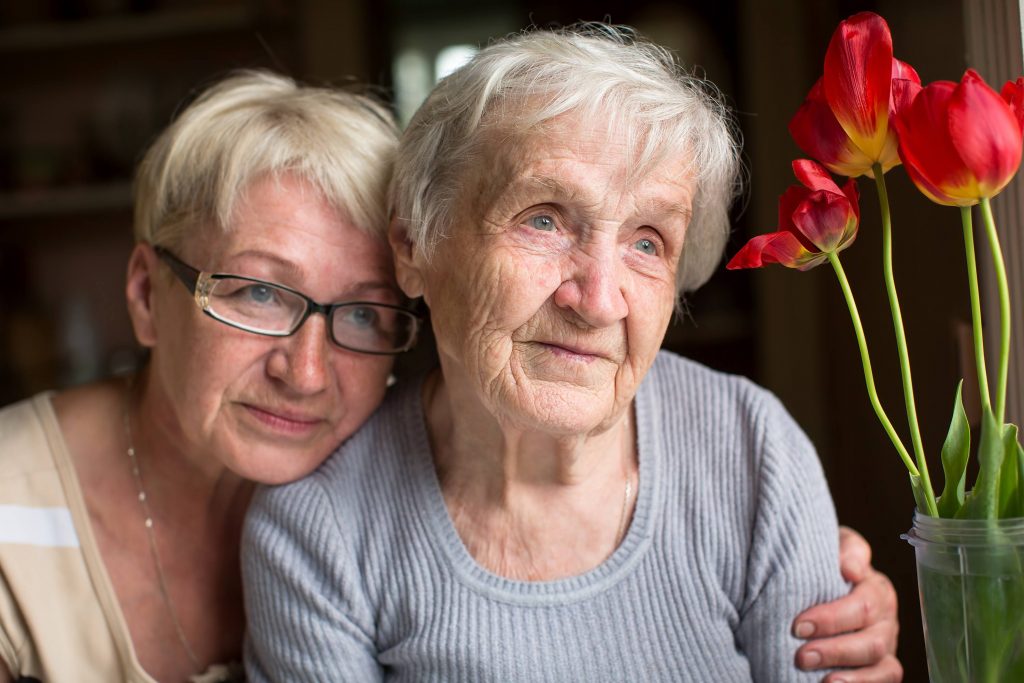-
COVID-19
Mayo Clinic Q and A: Effects of COVID-19 on caregivers, those with neurological disorders

Dear Mayo Clinic: My mother, who has dementia, lives with my husband and me, as well as our two children. As COVID-19 has continued, I am now working at home and juggling her care, as well as schooling my children. I'm overwhelmed and getting migraines more than usual. My mom seems more angry than usual and expresses resentment about us not allowing her to visit with her other grandchildren. Any advice to help her and also to reduce my stress level?
Answer: Having caregiving responsibilities for a loved one with a neurologic issue like Alzheimer's disease, dementia or mild cognitive impairment can be challenging on any given day. During the COVID-19 pandemic, it can be even more difficult to be a caregiver, especially when your loved one has difficulty understanding some of the necessary changes required to keep her and your family safe.
What to say and how to manage during these uncertain times depends on the severity of your loved one's condition.
If your loved one is processing relatively well, that is she has a mild cognitive impairment but is able to have good conversations and partake in the world, there's no problem with having a general discussion about COVID-19 and reminding her about what she needs to do, such as washing her hands and everything that comes with good infection control.
For a loved one who has significant dementia or more severe issues, such as Alzheimer's disease, and may not be able to process information, it's best to avoid discussions about COVID-19.
Change is hard on everyone, so try to put a positive spin on routine changes.
Social distancing guidelines can be challenging, especially for an older person who is accustomed to visiting regularly with family and friends. It's important to recognize and validate your mother's feelings, and then involve her in coming up with options for maintaining a sense of normalcy. That could be helping her set up weekly phone calls, or a Skype session with other grandchildren or friends.
For those who have a greater level of cognitive impairment, their behavior may change as routines change. Depending on the level of dementia or neurologic issues, these patients sometimes can become confused, or become anxious or agitated with any change in the home environment.
As you try to develop a new routine, it's important to keep the environment calm and have strategies to help alleviate tension. This will help you, as well, since patients with chronic neurologic conditions, such as migraines, epilepsy and seizures, are especially susceptible to the effects of stress.
First, make sure you have all necessary medication on hand ― both what you need for daily use and any rescue medication for migraines or seizures. Take an inventory of your medication, and if you see you are low, consider asking for a three-month prescription refill so that you don't have to call anyone for urgent refills.
Second, create an emergency action plan. I suggest that you talk to your neurologist or other health care provider about a plan. When should you call 911 if your medications do not work? The same is true for your mother. Talk with your family and also contact her health care provider to develop a plan regarding extra support or when to call 911 if she becomes too difficult to manage.
Identify opportunities to de-stress, which will help you reduce your risk for migraines. Consider these tips:
- Limit news to twice daily and rely on credible sources such as the Centers for Disease Control and Prevention and Mayo Clinic.
- Make self-care part of your daily routine. This includes eating a healthy diet, staying hydrated and getting plenty of sleep.
- Exercise. Take a walk outside or do a more formal routine.
- Meditate, stretch or practice deep breathing.
- Focus on the positive. Find at least one thing per day that makes you smile.
Because it's unclear how long the disruption and uncertainty of COVID-19 will last, you may also want to consider reaching out to your health care provider or other organizations about additional resources to help manage your caregiving responsibilities and daily life. — Dr. Joseph Sirven, Neurology, Mayo Clinic, Jacksonville, Florida
Check the CDC website for additional updates on COVID-19. For more information and all your COVID-19 coverage, go to the Mayo Clinic News Network and mayoclinic.org.







